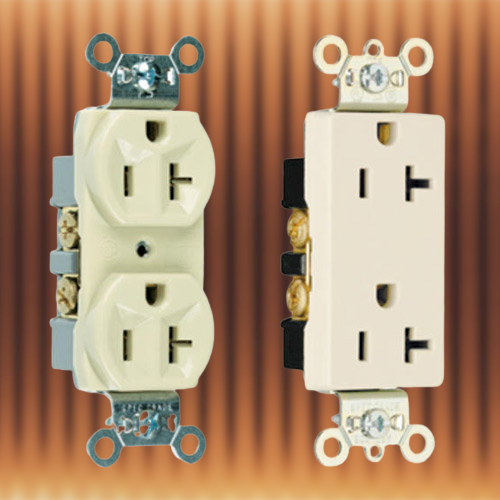Introduction
When it comes to finding the perfect space for establishing a business or a place to call home, the debate between commercial and residential outlets often arises. Both options have their unique advantages and disadvantages, making the decision-making process crucial for success. In this article, we will explore the Commercial vs Residential Outlets, weighing their pros and cons to help you make an informed choice.
Understanding Commercial Outlets
Commercial outlets refer to properties or spaces primarily used for conducting business activities. These spaces are tailored to accommodate various types of businesses, including retail stores, offices, restaurants, and warehouses.
Types of Commercial Outlets
- Retail Stores: These outlets are designed for businesses that sell goods directly to consumers, such as clothing stores, grocery stores, and electronic shops.
- Office Spaces: Offices are commercial outlets where professionals carry out administrative, managerial, or creative work.
- Restaurants and Cafes: These outlets provide food services to the public and are equipped with dining areas.
- Warehouses: Warehouses serve as storage spaces for inventory and are essential for distribution and logistics companies.
Understanding Residential Outlets
Residential outlets are properties intended for human habitation, providing a place for individuals and families to live.
Types of Residential Outlets
- Single-Family Homes: These are standalone houses designed to accommodate a single family.
- Apartments: Apartments are multi-unit buildings where each unit serves as a separate residence.
- Condominiums: Condos are similar to apartments, but residents own their units and share ownership of common areas.
- Townhouses: Townhouses are multi-level homes that share walls with neighboring properties.
Commercial vs Residential Outlets
Purpose and Usage
The primary difference between commercial and residential outlets lies in their purpose and usage. Commercial outlets are dedicated to conducting business activities, while residential outlets are meant for dwelling and living purposes.
Location and Zoning
Commercial outlets are typically located in busy commercial areas, near major roads, or in downtown districts. On the other hand, residential outlets are commonly found in quieter neighborhoods and suburbs, away from bustling commercial zones.
Property Size and Structure
Commercial outlets are often more spacious and structured to accommodate business needs, such as display areas, storage, and customer parking. Residential outlets, however, are designed to provide comfortable living spaces with appropriate amenities.
Lease Terms and Agreements
Commercial outlets usually have longer lease terms compared to residential outlets. Businesses often sign contracts for several years, while residential leases are typically for shorter periods, such as six months or a year.
Regulatory Requirements
Commercial outlets are subject to specific regulatory requirements and zoning restrictions imposed by local authorities to maintain business order and safety. Residential outlets must comply with different regulations tailored to protect residents and maintain residential neighborhoods’ tranquility.
Property Management
Commercial outlets often require professional property management to handle maintenance, tenant inquiries, and lease agreements. Residential outlets may also have property management, but individual homeowners can also manage them.
Economic Considerations
Commercial outlets tend to have higher rental costs due to their prime locations and business potential. Residential outlets’ rental prices are influenced by factors such as market demand, location, and property size.
Impact on Surrounding Areas
Commercial outlets can have a significant impact on the surrounding area’s economy and traffic flow. Residential outlets, on the other hand, contribute to the development of communities and neighborhood culture.
Read More: Jesse Williams Net Worth, Height, Age, Movies, Career, Personal Life, Physical…
Security Measures
Commercial outlets may require enhanced security measures, such as surveillance cameras and alarms, to protect valuable merchandise and ensure the safety of employees and customers. Residential outlets focus on providing a safe and secure environment for residents.
Amenities and Facilities
Commercial outlets often prioritize amenities and facilities that cater to their specific business needs, such as loading docks, commercial kitchens, and ample storage. Residential outlets, however, focus on providing amenities for residents, such as swimming pools, gyms, and communal spaces.
Pros and Cons of Commercial Outlets
Advantages of Commercial Outlets
- High earning potential through business operations
- Exposure to a diverse customer base
- Enhanced opportunities for networking and collaboration
- Tax benefits for business-related expenses
Disadvantages of Commercial Outlets
- Higher rental and operational costs
- Potential for an economic downturn affecting business
- Increased responsibility for maintenance and security
Pros and Cons of Residential Outlets
Advantages of Residential Outlets
- Stability and long-term living arrangements
- Sense of community and belonging
- Lower maintenance responsibilities compared to commercial properties
Disadvantages of Residential Outlets
- Limited income potential compared to commercial properties
- Impact of neighborhood changes on property value
- Less flexibility in location compared to commercial spaces
Choosing the Right Outlet for Your Business or Residence
When deciding between commercial and residential outlets, consider factors such as the nature of your business, financial capabilities, long-term goals, and personal preferences. Seek professional advice if needed to make an informed decision that aligns with your objectives.
Conclusion
In conclusion, the choice between commercial and residential outlets depends on your unique circumstances and requirements. Both options have their merits and drawbacks, and understanding these differences is vital to making an informed choice. Whether you are seeking a place to establish your business or searching for the perfect home, careful consideration will lead to a successful and satisfying outcome.
Apart from this, if you are interested to read an amazing article on Construction Of DC Generator, then visit our Tech category.
FAQs
Yes, but you must check local zoning regulations and obtain the necessary permits before making the conversion.
Commercial lease terms can vary but often range from three to ten years, depending on the landlord and property.
Yes, due to the higher business-related risks, commercial outlets typically need specialized insurance coverage.
Some tax benefits, such as deductions for mortgage interest and property taxes, may apply to residential property owners.
A well-chosen location in a high-traffic area can significantly impact a business’s success by increasing visibility and attracting more customers.







